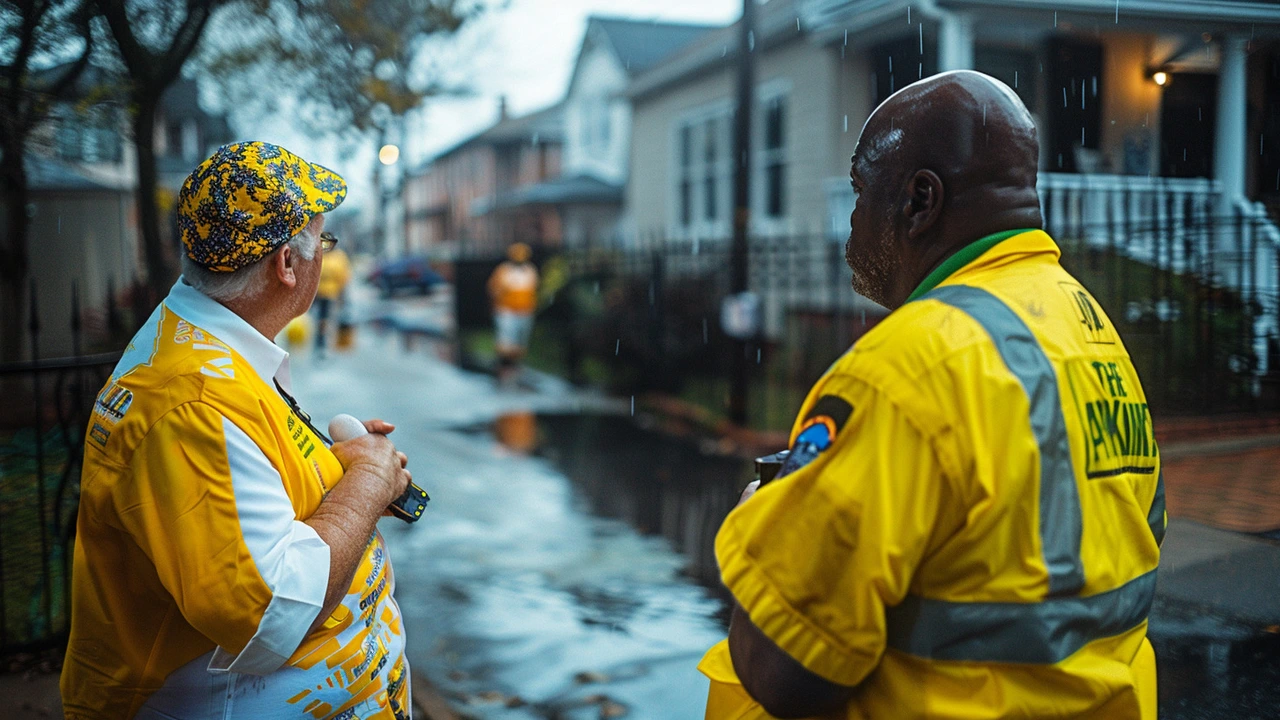Tension in Buffalo City: Residents Confront ANC Volunteers Over Election Posters

In Politics
In a recent incident in Buffalo City, South Africa, tensions flared as local residents confronted African National Congress (ANC) volunteers attempting to erect election posters. A video capturing the confrontation has gone viral on social media, sparking a wider conversation about property rights, political campaigns, and racial tensions in the area.
Incident Details
The altercation began when ANC volunteers were seen attempting to place election posters on street poles in front of private residences. An irate homeowner, later identified in the video, vehemently opposed the volunteers, asserting that they were infringing on his property. The homeowner's request for the volunteers to vacate his property escalated quickly, leading to a heated exchange that many online viewers perceived as aggressive and potentially violent.
Political and Legal Repercussions
Following the incident, the ANC's Western Cape branch publicly condemned the confrontation, labeling it as an act of intimidation mingled with racial overtones. ANC spokesperson Khalid Sayed announced that the party would investigate the matter further, hinting at underlying racial tensions within the community that might have contributed to the severity of the dispute.
Regulations and Guidelines
The City of Cape Town, where similar regulations apply, had recently reiterated the rules concerning election posters. According to these rules, political posters are only permitted on streetlight poles, with restrictions on the number of posters per pole and explicit prohibitions against attaching them to other types of street furniture or city infrastructure like bridges. The guidelines also specify that posters must be securely mounted on a board using robust strings or plastic fastenings, explicitly forbidding the use of metal wires, which pose their own set of public safety hazards.
Broader Implications
This incident has ignited a broader discussion on the appropriateness of political campaigning tactics and the sanctity of private property. It also raises questions about the enforcement of electoral regulations and the role of local government in ensuring that campaign activities do not infringe upon the rights and privacy of citizens.
Moreover, the ANC's decision not to report the altercation to the Electoral Commission of SA (IEC) or police immediately following the incident suggests a possible lapse in protocol, potentially complicating legal and social remedies. The IEC categorizes the defacement or unlawful removal of election posters as a criminal offense, as well as obstruction of political events or rallies, pointing to the seriousness with which such matters are generally regarded.
Community Reaction and Racial Tensions
The viral spread of the video has brought to light not only the immediate conflict between the homeowner and ANC volunteers but also wider issues of race relations in the Western Cape. The term 'racism', used by the ANC in their condemnation of the incident, points to deep-rooted issues that may extend beyond a mere disagreement over election posters.
As South Africa continues to navigate its complex political landscape, such incidents serve as a stark reminder of the ongoing challenges facing its democracy. Discussions and debates generated from such events are critical as they encourage a dialogue on civic responsibilities, the bounds of political campaigning, and the necessary reconciliation in post-apartheid South Africa.
Write a comment